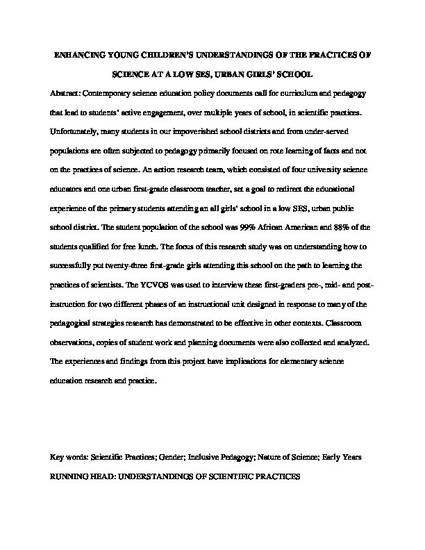
The purpose of this study was to increase the science education community’s understanding of the experiences and needs of girls who cross the traditional categorical boundaries of gender, race and socioeconomic status in a manner that has left their needs and experience largely invisible. A first of several in a series, this study sought to explore how African American girls from low SES communities position themselves in science learning. We followed a mixed-methods sequential explanatory strategy, in which two data collection phases, qualitative following the quantitative, were employed to investigate 89 African-American girls’ personal orientations towards science learning. By using quantitative data from the Modified Attitudes toward Science Inventory to organize students into attitude profiles and then sequentially integrating the profile scores with year-long interview data, we found that the girls’ orientations towards science were best described in terms of definitions of science, importance of science, experiences with science, and success in science. Therefore, our mixed method analysis provided four personality orientations which linked success in school and experiences with science to confidence and importance of science and definitions of science to value/desire. In our efforts to decrease the achievement gap, we concluded there should be more emphasis on conceptual understanding and problem-solving skills, while still being cognizant of the danger of losing the connection between science and society which so often plagues achievement-focused efforts. Our continued efforts with this group of girls will center on these instructional techniques with the goal of addressing the needs of all science learners.

This manuscript has been published in the Journal of Mixed Methods Research. Please find the published version here (note that a subscription is necessary to access this version):
http://mmr.sagepub.com/content/3/4/386.abstract
Sage holds the copyright in this article